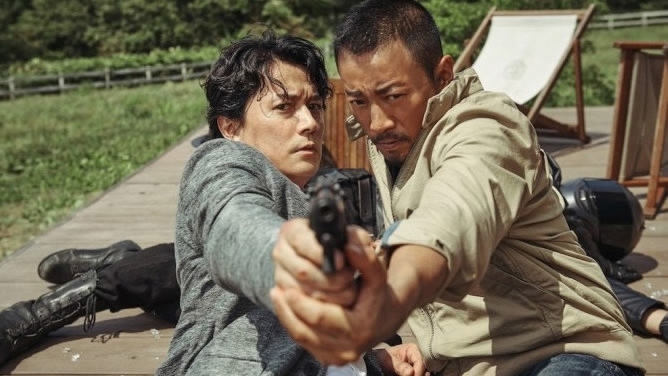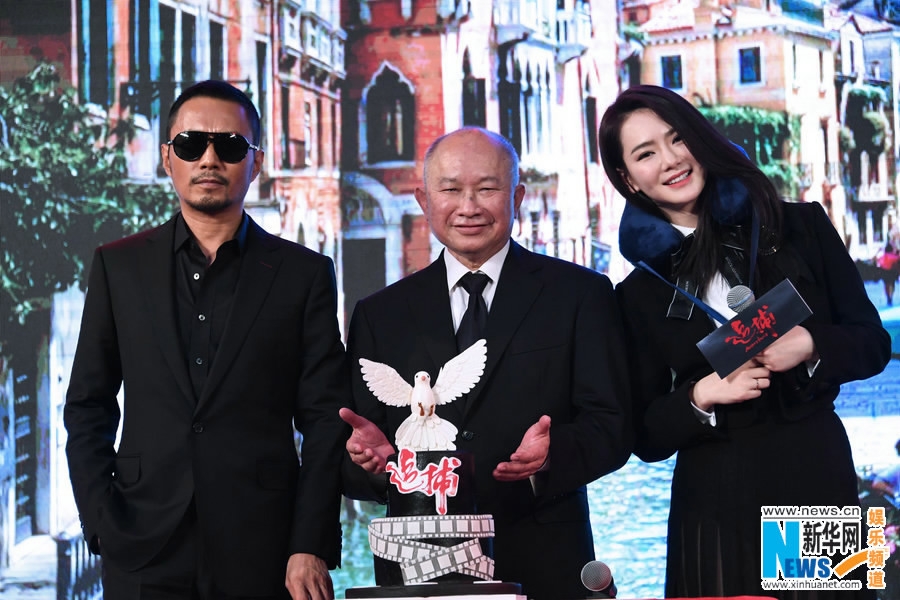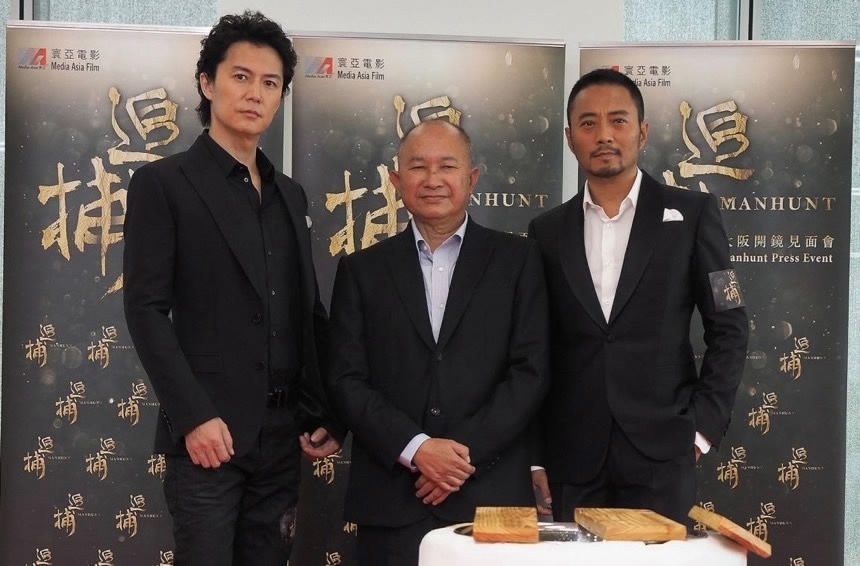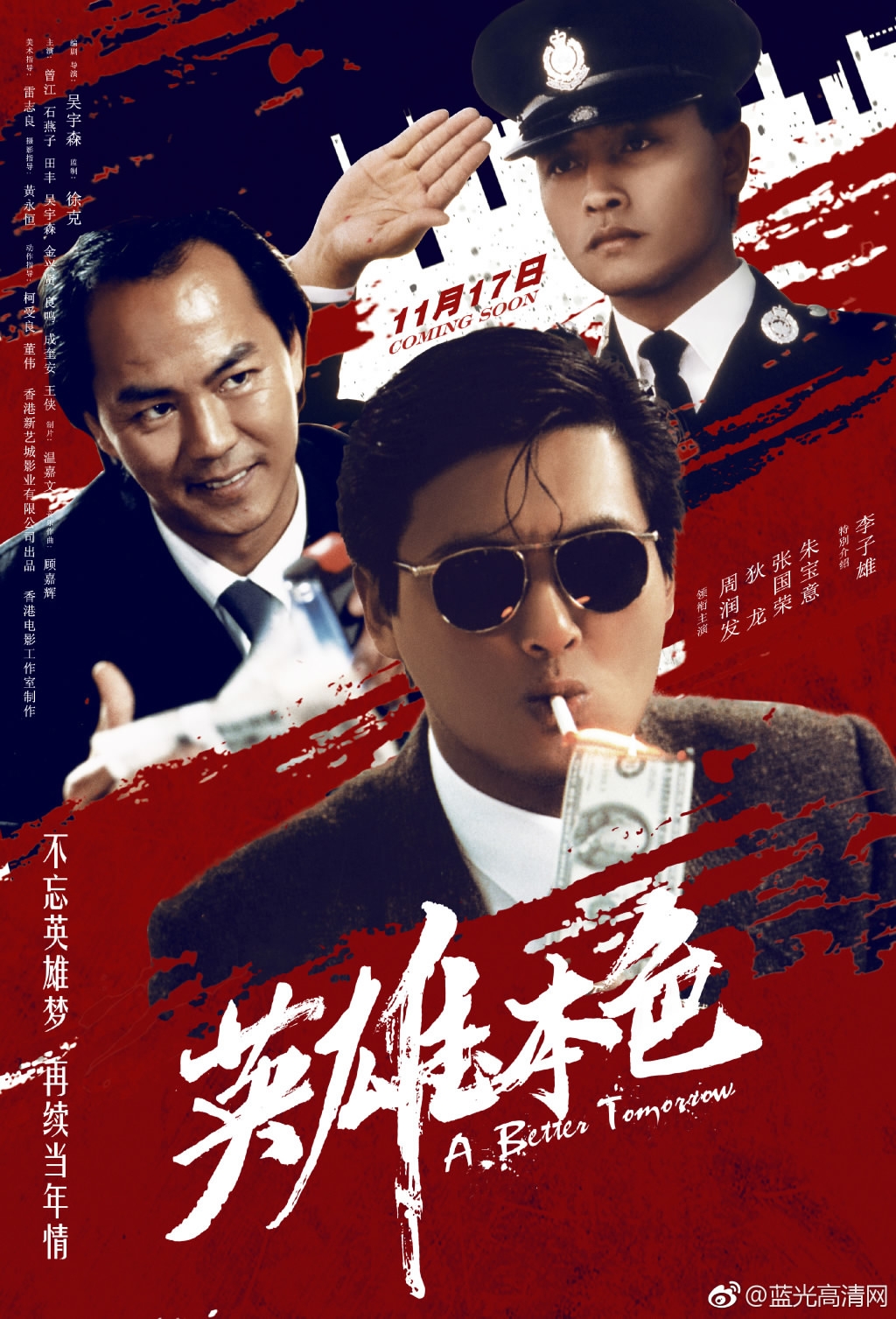
Culture
19:48, 23-Nov-2017
John Woo’s Manhunt brings heroic bloodshed back – can it do the same for the director’s career?
Josh McNally

Few names in cinema are as evocative as that of John Woo. Just those two words immediately conjure images of cops and gangsters, tough and poetic, wearing sharp suits and stalking the neon lit streets of Hong Kong with a pistol in both hands, a death wish in their heart and doves flying overhead. And yet, if you look at John Woo’s filmography, that hasn’t been the case since 1992, when Woo bid the heroic bloodshed genre – which he helped canonize, if not create – farewell.
From there, he spent the next decade fighting uphill battles with Hollywood, first trying to recreate his Hong Kong aesthetic with films such as "Face/Off" and "Mission Impossible II" with big stars like (post-"Pulp Fiction") John Travolta and Tom Cruise which only served to highlight the differences between western and eastern cinema - and then his career took a hard, unexpected turn with "Red Cliff" and "The Crossing": Two big budget period dramas that were so grand and lavish that they each got split in half to make them more palatable to audiences who, perhaps, didn’t want to sit through 288 minutes of "Red Cliff" and 206 minutes of "The Crossing" all at once.
In fact, with "The Crossing", it seems viewers didn’t want to sit through it at all, as both parts of the film disappointed audiences and critics, ultimately making a loss at the box office.

Zhang Hanyu, John Woo and Ha Ji-won at a press conference in Beijing /Xinhua
Zhang Hanyu, John Woo and Ha Ji-won at a press conference in Beijing /Xinhua
While "Manhunt" looks like a course correction, what was it about the material that made Woo return to his action roots?
Speaking to Clifford Coonan of The Hollywood Reporter in 2015, the director said the film was intended to be a tribute to Ken Takakura, who passed away at the end of 2014.
“He was my idol,” Woo said, “Chow Yun-Fat’s image in "A Better Tomorrow" was inspired by Takakura’s image and style. I wanted to make a movie dedicated to Ken Takakura.”
And there is perhaps no better way than remaking Manhunt, which was released in China in 1978, as the first foreign film to be shown in the country after the end of the Cultural Revolution.
In the original, Takakura plays Detective Morioka, a hardboiled detective who goes on the run to clear his name after being charged with corruption.
Though known best as "Manhunt", the alternate titles of "Hot Pursuit" and "Dangerous Chase" perhaps sum the film up better as, over the course of 151 minutes, film plays out as one long game of cat-and-mouse which takes place in, out and around Tokyo and is perhaps best known for the protracted sequence in which, once in the countryside, Morioka saves a woman from a bear, causing the animal to get involved in the hunt and ultimately save Morioka from the police – allowing him to escape in a Cessna, which he manages to fly perfectly the very first time.

Masaharu Fukuyama, John Woo and Zhang Hanyu /Xinhua
Masaharu Fukuyama, John Woo and Zhang Hanyu /Xinhua
Woo’s film clocks in at almost an hour shorter but promises to be no less wild.
The film replaces Detective Morioka with Du Qiu, a Chinese lawyer working in Japan, and the charge of theft has been significantly upgraded to rape, murder and corruption charges leveled at the behest of a shady pharmaceutical company – but, as with the original, Du will stop at nothing to clear his name, eventually getting involved with the headstrong detective Yamura and together, they work to unravel the conspiracy.

The poster for the re-release of A Better Tomorrow /Douban
The poster for the re-release of A Better Tomorrow /Douban
This complexity is just the first sign of the film being an old-school Woo movie as early reviews suggest it is both unnecessary and exists as a means to an end, allowing the director to send the plot in wherever it needs to go in order to facilitate whatever set piece he wants to make next: the trailer alone promises exploding cars, jet ski chases, people leaping through windows and a gangster massacre that plays like an updated riff on Chow Yun-Fat’s ill-fated mob hit from the opening of "A Better Tomorrow".
If this all sounds a little too much like pastiche – as it did for Variety’s Jessica Kiang, who described the movie in an early review as being little more than “a once-inventive filmmaker [plundering] his own legacy for easy props.” – Chinese viewers still have a chance to catch a restored version of the original "A Better Tomorrow", John Woo’s 1986 action classic, which is currently in theaters across the country.
Ti Lung, at that point best known for his work with the Shaw Brothers, was officially the lead but the supporting roles of Sung “Little Kit” Tse-Kit and Mark Lee, as played by Leslie Cheung and Chow Yun-Fat respectively, became the draw, catapulting the latter to stardom and making him a fashion icon along the way – wearing the look that defined Woo’s icon, Ken Takakura.
"Manhunt" is released in China on November 24.

SITEMAP
Copyright © 2018 CGTN. Beijing ICP prepared NO.16065310-3
Copyright © 2018 CGTN. Beijing ICP prepared NO.16065310-3